Trump Nato: Leaders tackle Afghanistan conflict
- Published
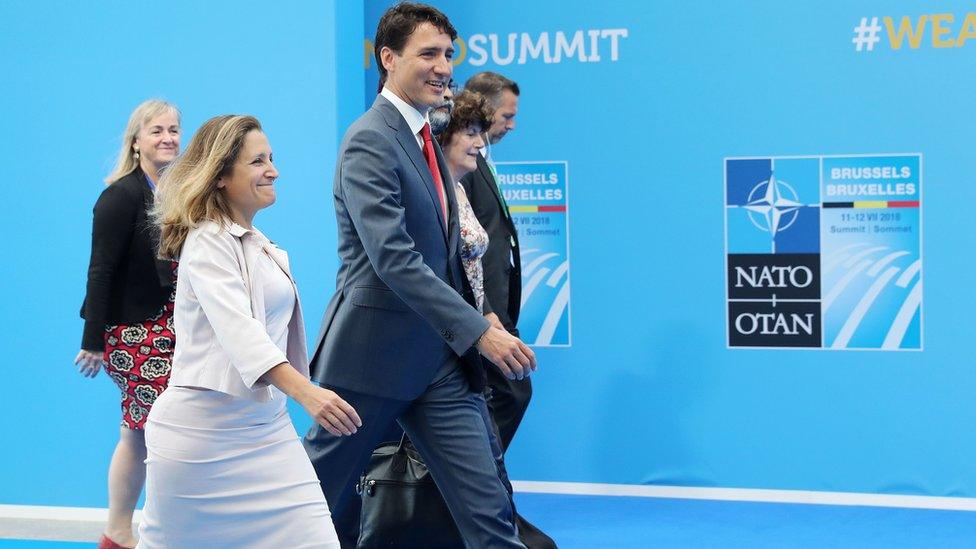
Canada's Foreign Minister Chrystia Freeland (C) and Prime Minister Justin Trudeau (3R) are at the summit
Nato leaders are turning their attention to the conflict in Afghanistan, on the second day of a Brussels summit so far dominated by demands from President Donald Trump.
Taliban militants reportedly killed up to 30 soldiers in attacks on Afghan army posts on Thursday.
Mr Trump has urged Nato allies to commit at least 4% of their annual output (GDP) to military spending.
Nato states are currently working towards a target of 2%.
President Trump used Thursday morning's meeting to demand that the 2% goal be met by 2019, according to reports.
Reuters news agency said he broke from "a carefully scripted session" about other Nato matters to emphatically restate his position.
In a press conference, Mr Trump was complimentary about the meeting. "We made a tremendous amount of progress today," he said.
"It has been really amazing to see the level of spirit in that room," he added, before adding that he believed in Nato and it was a "fine-tuned machine".
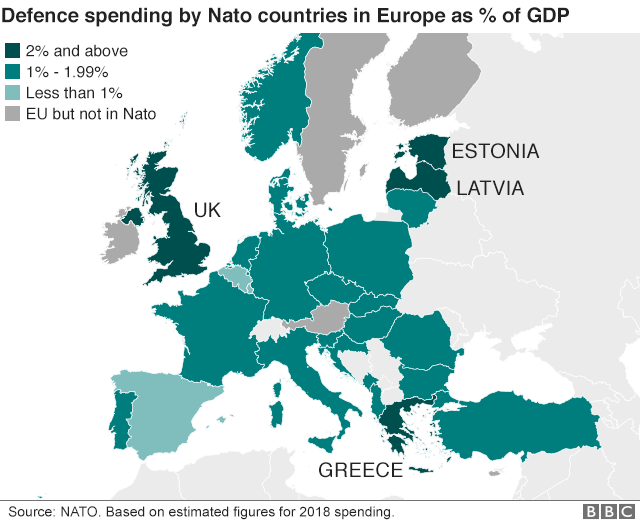

In a separate briefing, German Chancellor Angela Merkel said there was a clear commitment to Nato from all attendees.
There had been concern that President Trump might quit the alliance. But Nato sources, speaking to Reuters, said Mr Trump denied making such a threat.
Mr Trump's early-morning tweets from Brussels had been typically critical.
Allow X content?
This article contains content provided by X. We ask for your permission before anything is loaded, as they may be using cookies and other technologies. You may want to read X’s cookie policy, external and privacy policy, external before accepting. To view this content choose ‘accept and continue’.
Allow X content?
This article contains content provided by X. We ask for your permission before anything is loaded, as they may be using cookies and other technologies. You may want to read X’s cookie policy, external and privacy policy, external before accepting. To view this content choose ‘accept and continue’.
The US leader has specifically singled out Germany for criticism over its defence spending.
He has also accused the country of being held prisoner to imported Russian energy, saying it is "totally controlled" by Moscow.
EU figures suggest Russia is responsible for between 50% and 75% of Germany's gas imports but gas makes up less than 20% of Germany's energy mix for power production.
President Trump's next stop after Belgium is the UK, where he will arrive early in the afternoon to begin a two-day working visit, which is expected to spark public protests.
Trump baby blimp ready to take first steps
What's the plan for Afghanistan?
Afghanistan's President Ashraf Ghani is present for the second day of talks, and Nato's Secretary-General Jens Stoltenberg hopes the bloc will agree to fund Afghan security forces until 2024.
Britain's Prime Minister Theresa May has already confirmed that the UK will send 440 more troops to serve in non-combat roles in Afghanistan.
The US also committed an extra 3,000 troops to support Afghan forces in September 2017 - bringing its total to 15,000.
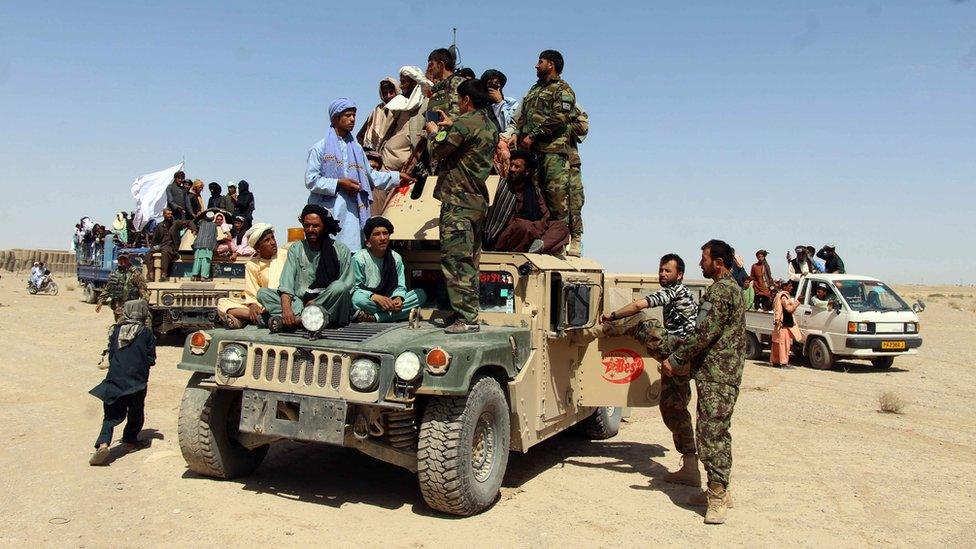
The Taliban and Afghan forces held a brief ceasefire during Eid celebrations in June
US officials have said Washington is planning a strategic review, a year after Mr Trump agreed to remain involved in the 17-year conflict.
The US-led invasion drove the hardline Taliban from power in 2001, as part of a crackdown on Islamist militants after the 9/11 attacks in the US.
Thousands of Nato troops were deployed and a long, bloody conflict followed as the ousted militants fought back.
In 2014, Nato formally ended the combat mission, handing over to Afghan forces, whom it had trained.
Since then, the Taliban have made substantial territorial gains across the country. A BBC study from January found the group is openly active in 70% of Afghanistan, and controls or threatens more territory than before the foreign troops left.
On Thursday, officials in Afghanistan said the Taliban had launched an attack on a number of army posts in the northern province of Kunduz.
Earlier, dozens of Islamic religious scholars met in Saudi Arabia to discuss Afghanistan's war and called on the Taliban to renounce violence.
Is Nato still expanding?
Nato leaders will discuss the alliance's ties with Georgia and Ukraine. Both countries want to join Nato, but their bids are not expected to make progress.
In 2018, Donald Trump told Nato chief Jens Stoltenberg that Germany is "totally controlled by Russia"
That is because Nato rules prevent countries with a border conflict from joining and both countries have disputes with Russia.
By contrast, a ceremony will be held for Macedonia after it was invited to begin accession talks on Wednesday.
What will Trump do in the UK?
He will spend time with the Queen and prime minister, before flying to Scotland to spend the weekend at his golf resort.
Thousands of people are expected to protest against his visit across the UK.
Mr Trump is due to hold his first summit with Vladimir Putin, in Helsinki, on 16 July.
He shocked some by quipping that the Nato gathering might prove tougher than next Monday's summit with Mr Putin.
- Published18 February
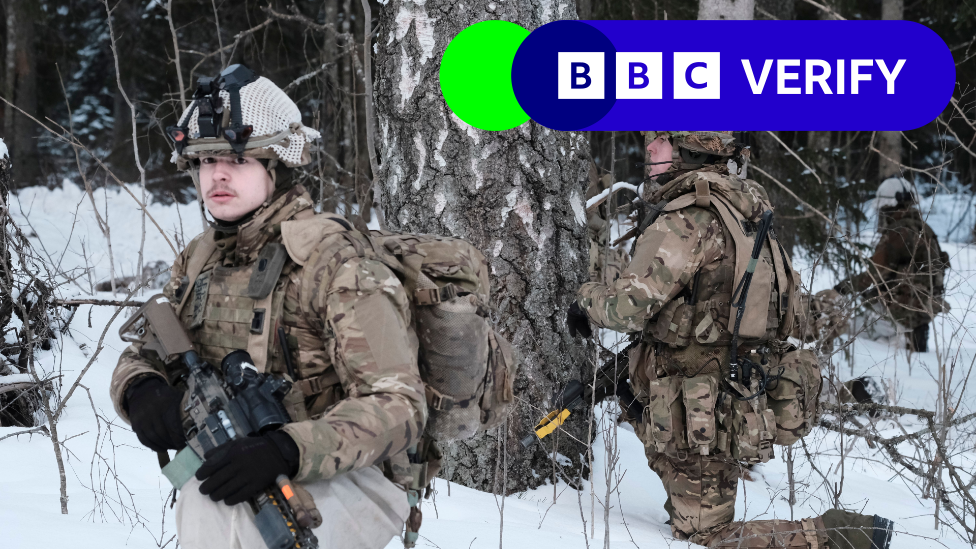
- Published11 July 2018
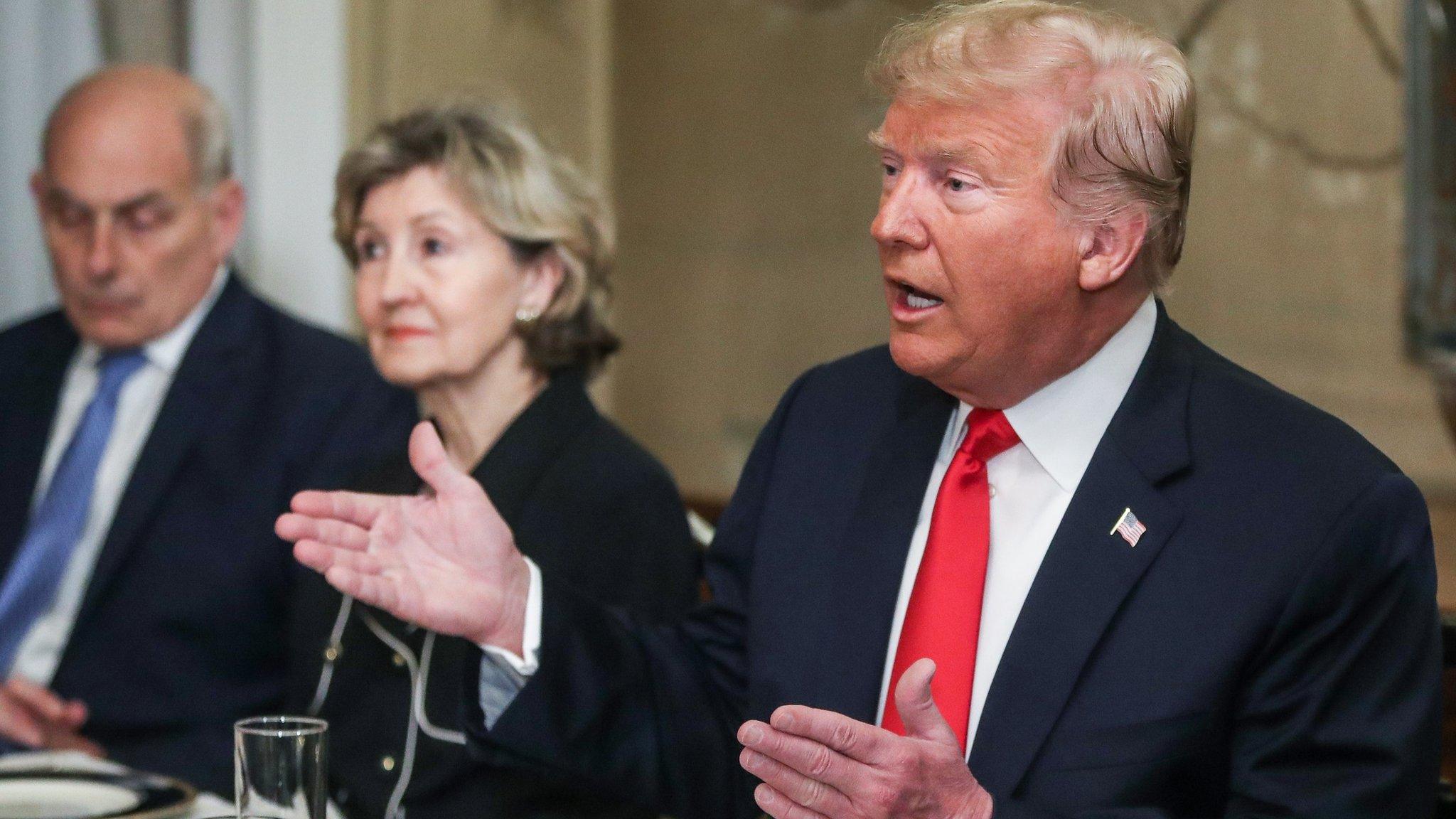
- Published7 June 2018
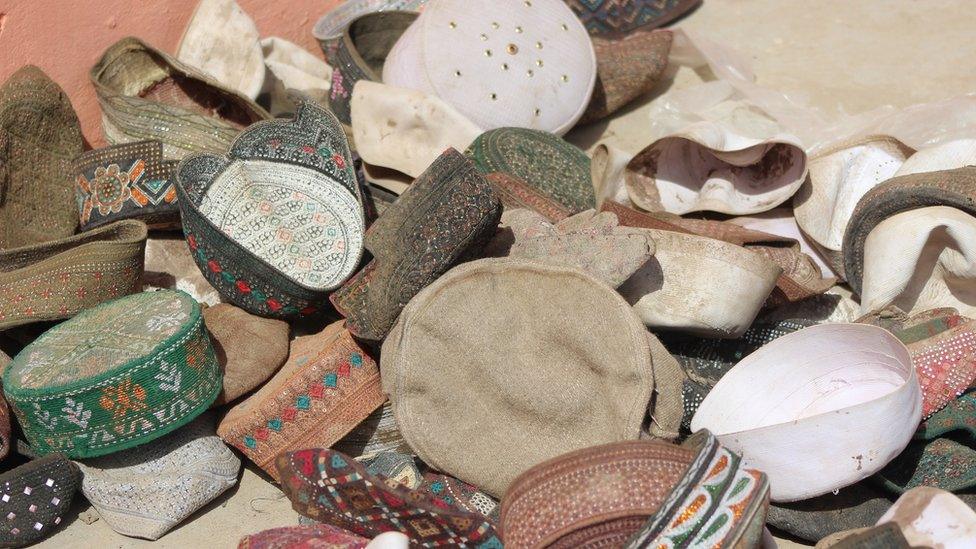
- Published11 July 2018
- Published31 January 2018
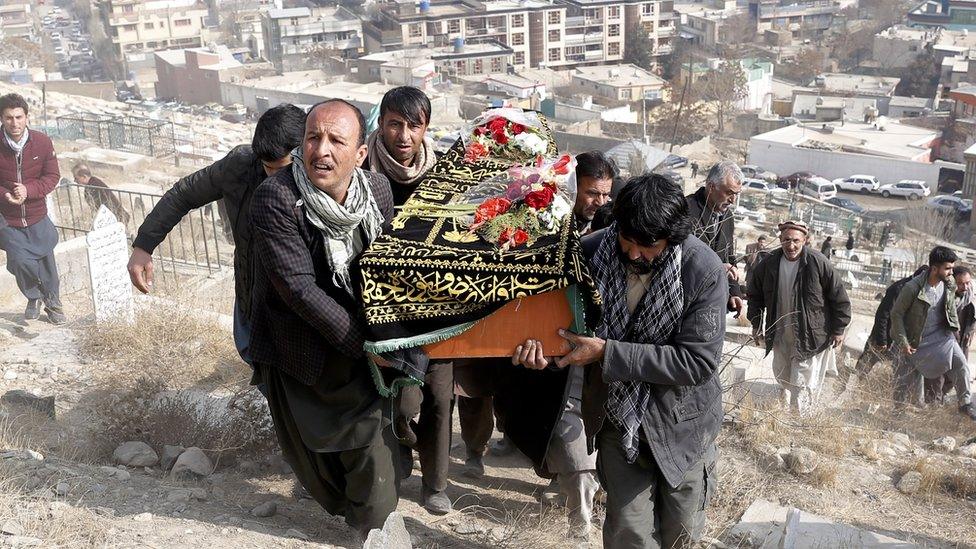
- Published10 July 2018
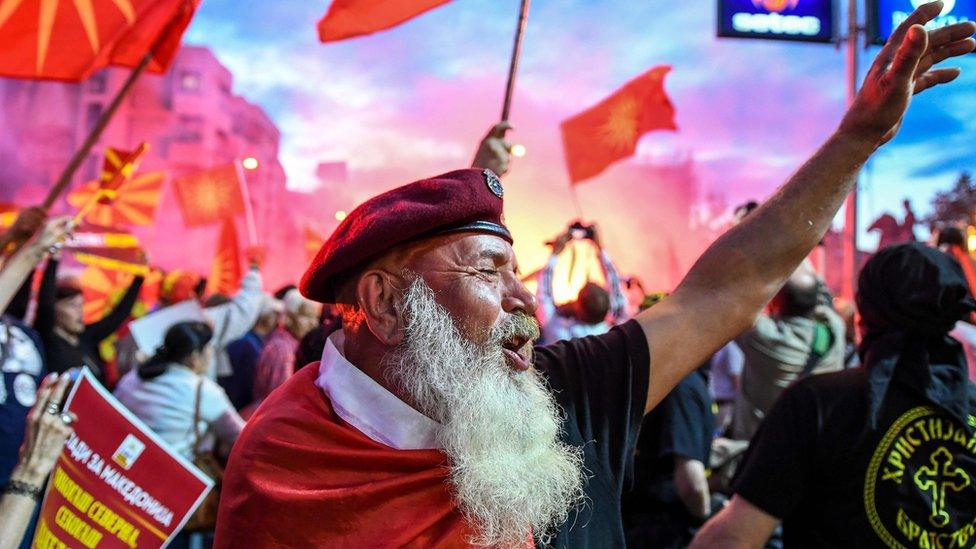
- Published12 July 2018
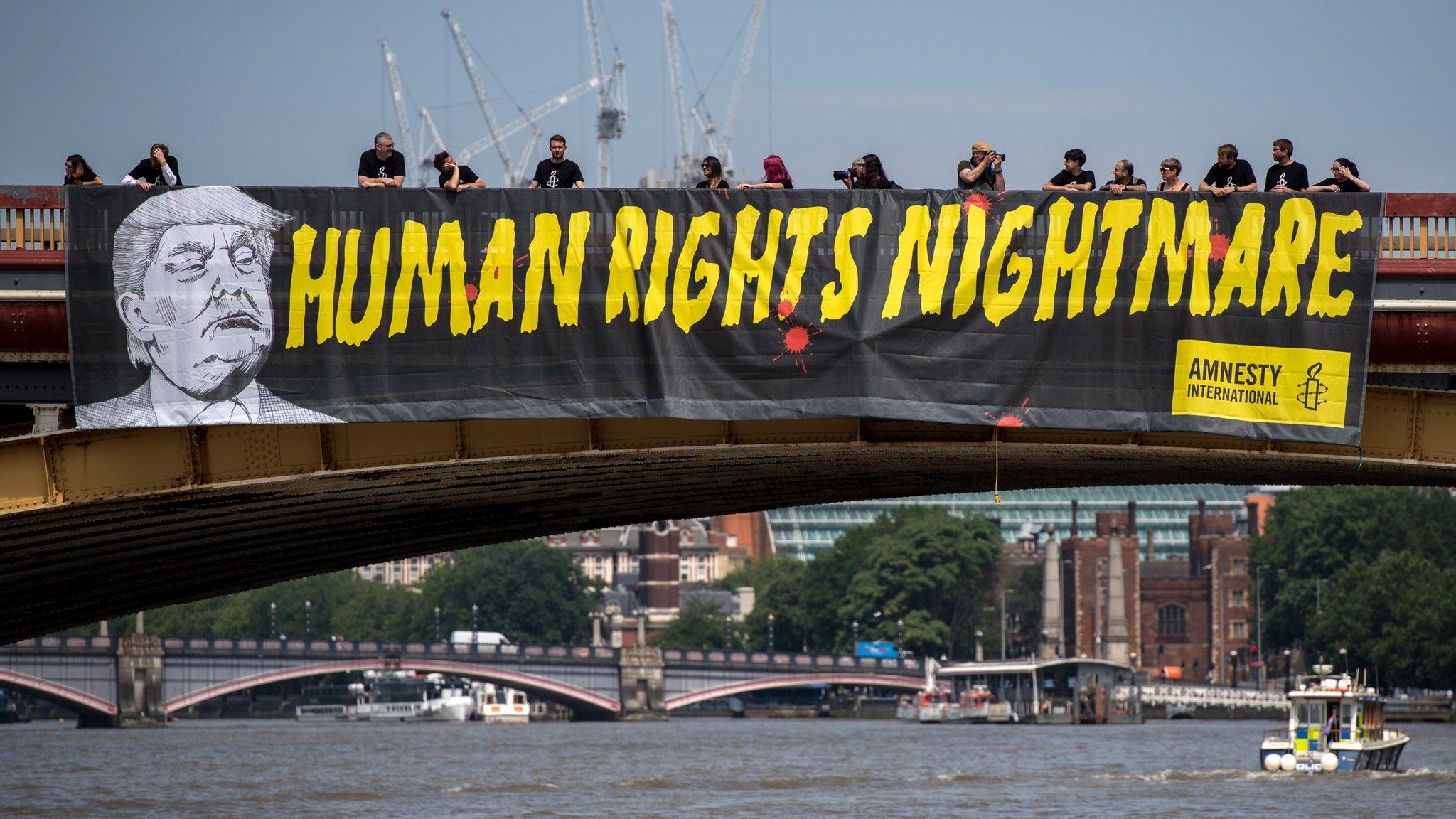
- Published11 July 2018
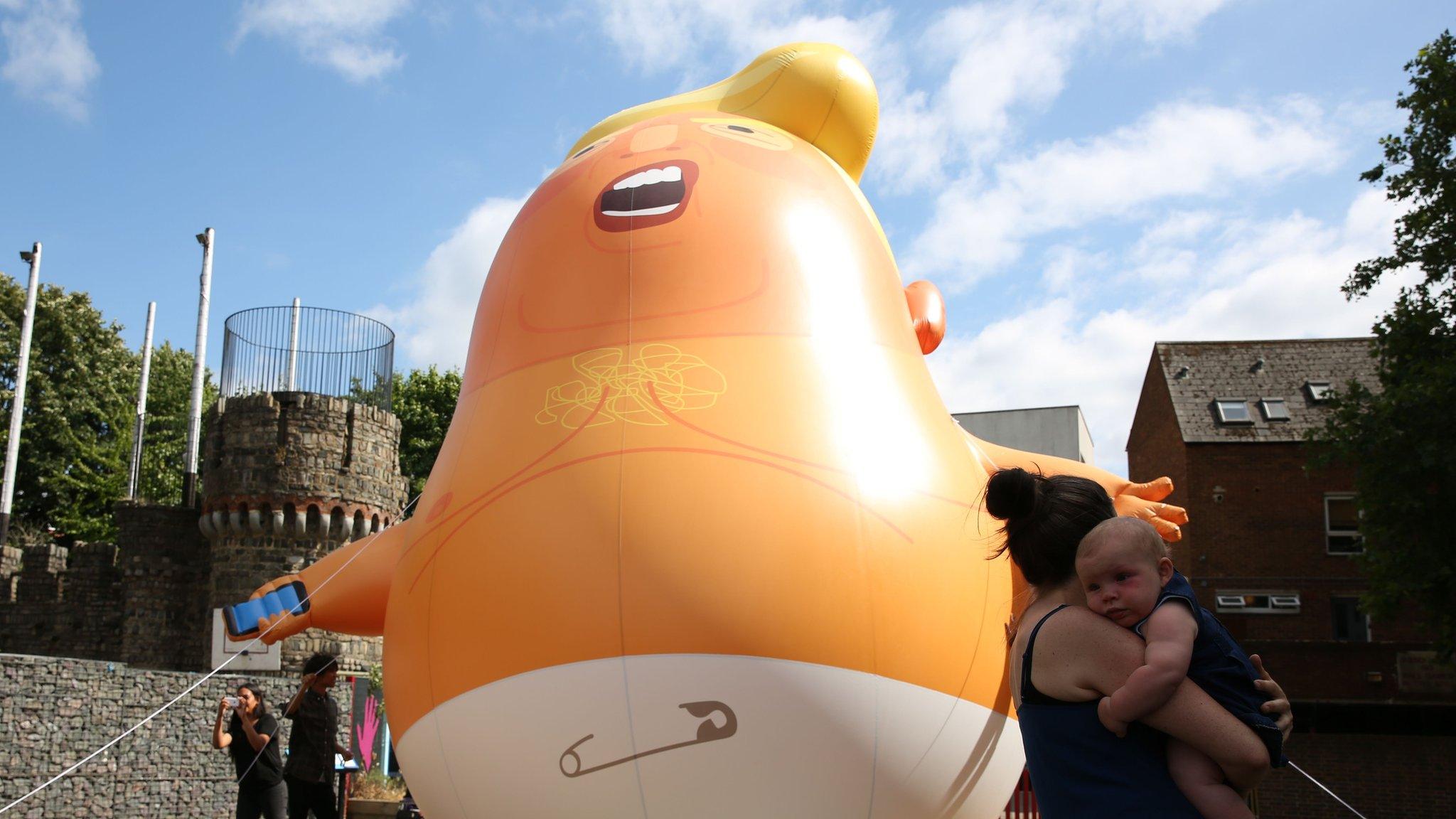
- Published11 July 2018
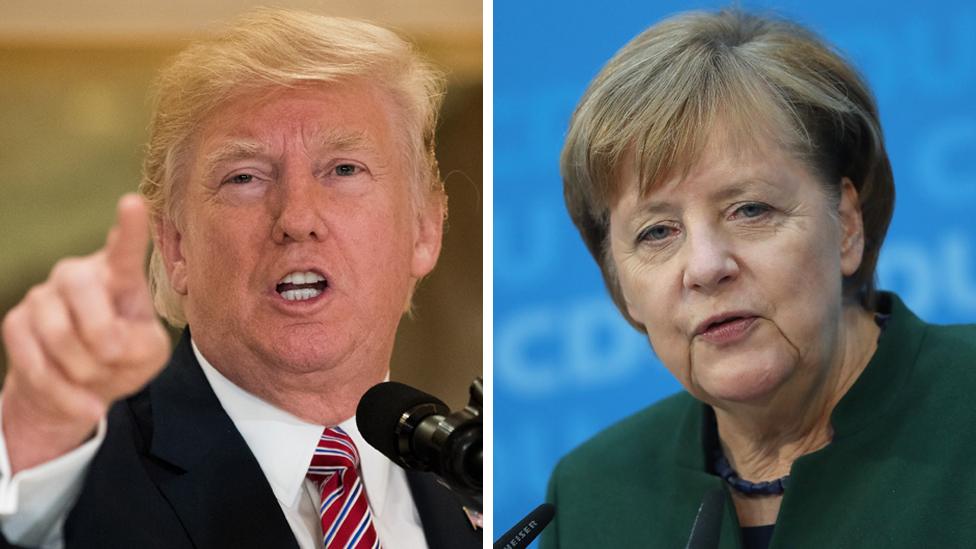
- Published9 July 2018